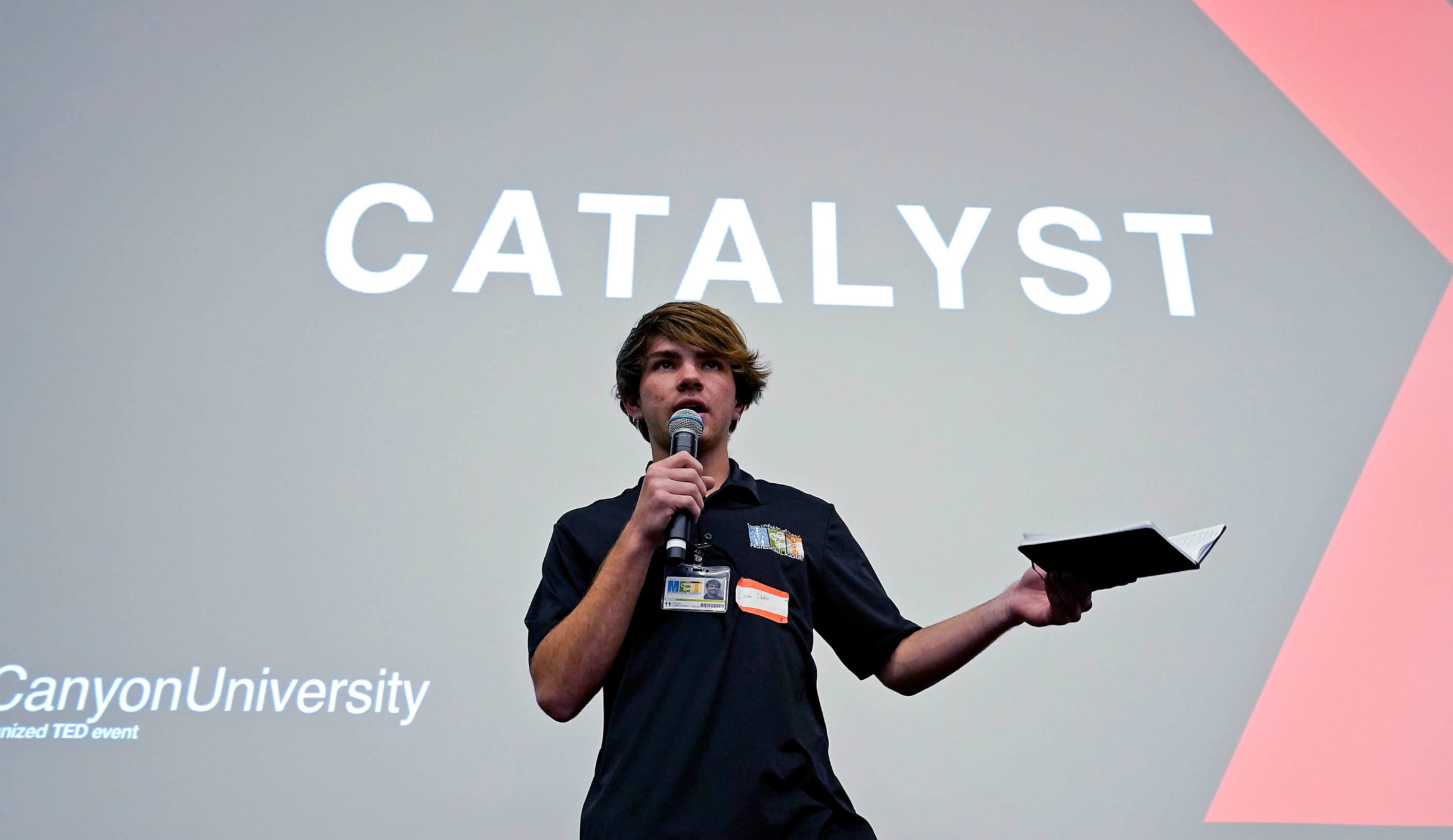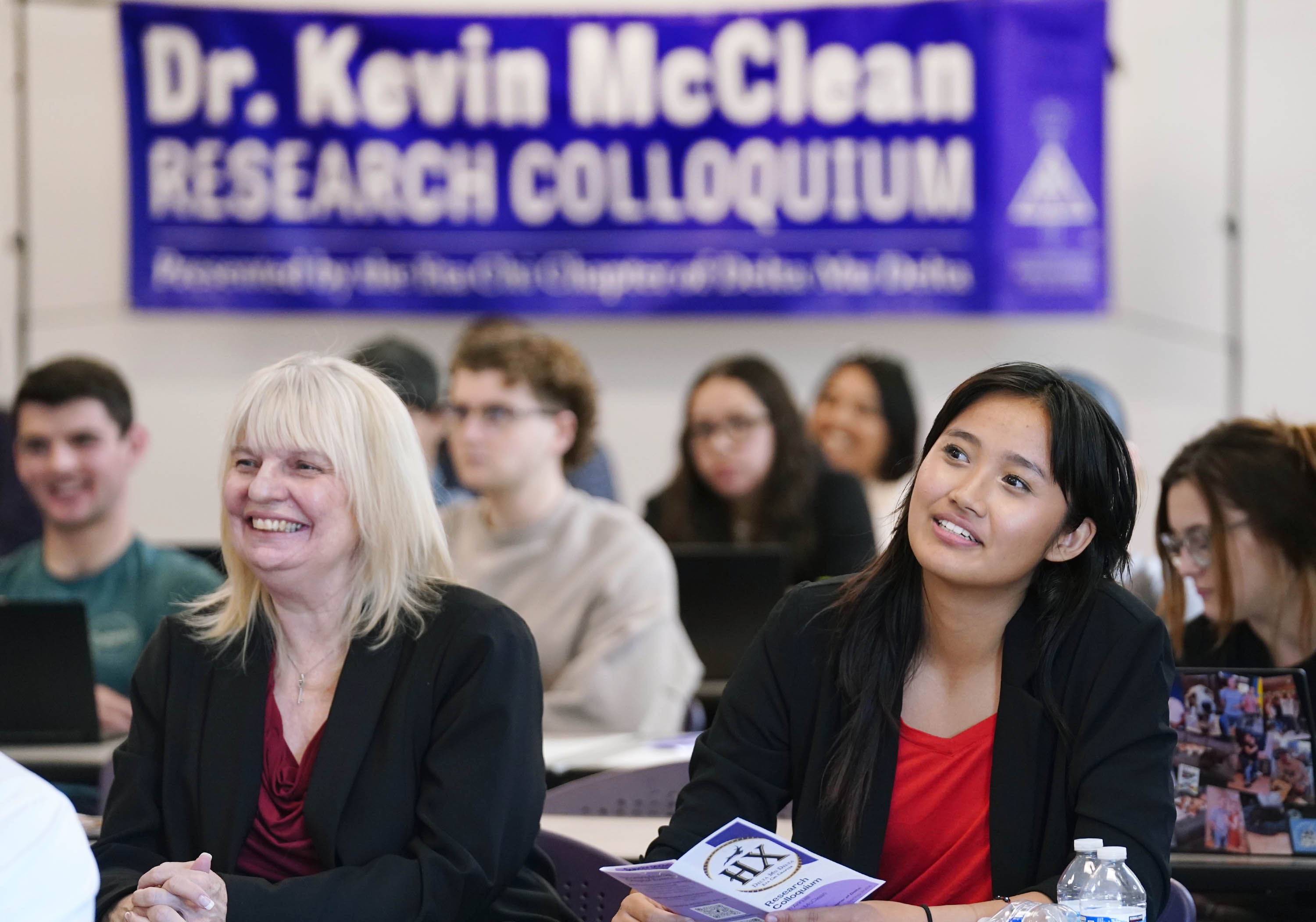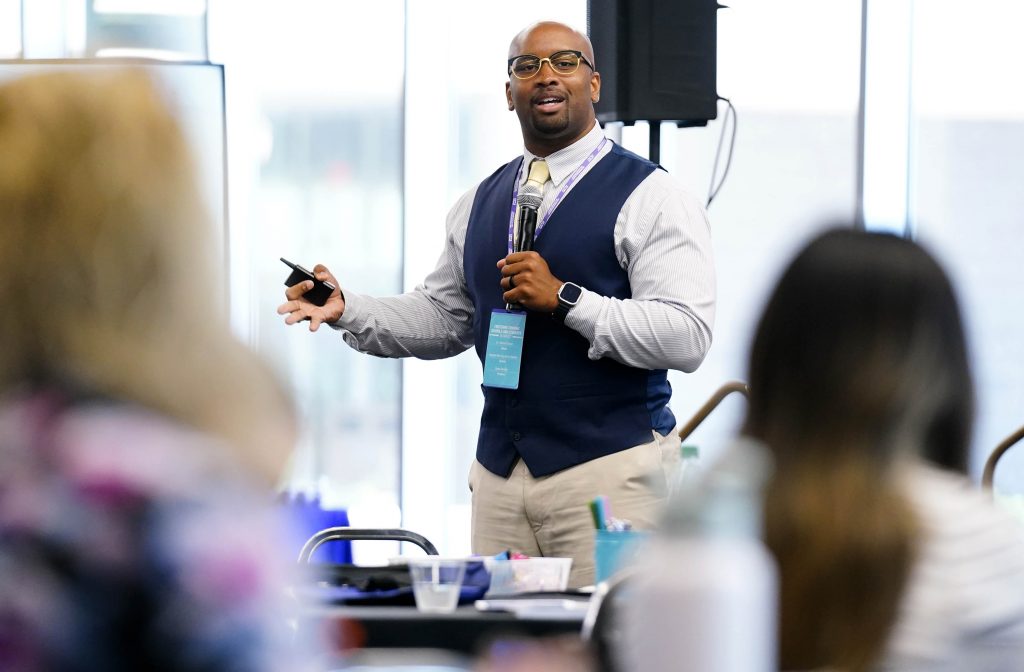
Photos by Ralph Freso
As a summit of hopeful educators convened Friday at Grand Canyon University, they had no idea what the weekend’s national news would bring. But the message of the organizer of the Fostering Thriving Schools and Students Summit Series would become even clearer.
“We are in a super divisive time,” said Emily Farkas, program director of GCU's Canyon Center for Character Education, which created the four-weekend series for K-12 educators. “Character education is needed more than ever.”
One basic explanation of character education is learning to be a better person and teacher who helps inspire the creation of better people. That is vitally important today and starts with young people in schools, where CCCE is building a national movement around character education through GCU College of Education’s network of students, faculty and partners to promote cultures that encourage human and societal flourishing through virtue formation.
Who better than teachers? That was one of the messages of four speakers who led the first weekend sessions of the summit on Friday and Saturday in Building 71 at GCU.
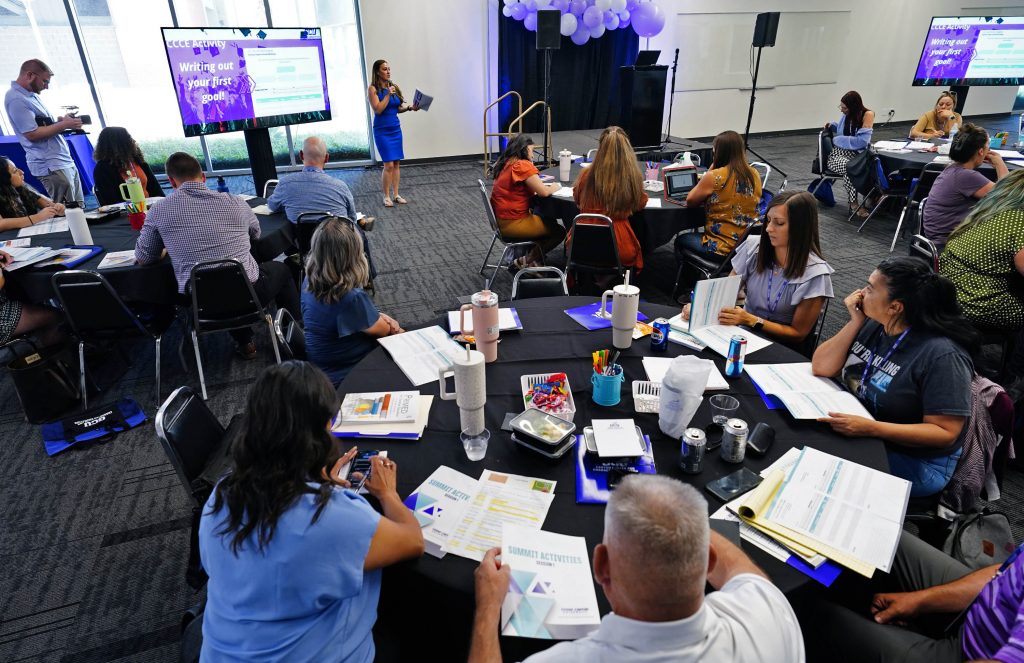
Those teachers must be good role models, said Dr. Antonio Cooper, director of curriculum and instruction for Vestavia Hills (Alabama) City School System. Then he showed how not to be a good role model with a photo of the candidates for U.S. president in a debate, “one talking over the other and the other one telling him to shut up.”
For students to overcome the examples all around them in a rancorous social media culture, teachers must be vulnerable to build relationships with students.
“It seems like a weak word. We are teachers and feel like we should have all the answers. But we are human, not perfect robots,” he said. “Until you are willing to be vulnerable, (students) will talk about surface stuff. Vulnerability leads to trust.”
Teachers who know their own values and how they were formed is a good start, speakers learned in the summit, which hosted 70 educators from across the country. Cooper urged them to ask: “Who am I?”
In his own life, an absent father who returned later in life taught him to not quit when things get hard, a teacher stressed that he could be whatever he wanted to be in life and Jeremiah 29:11 gave him a formative quote that he lives by – “For I know I have plans for you ….”
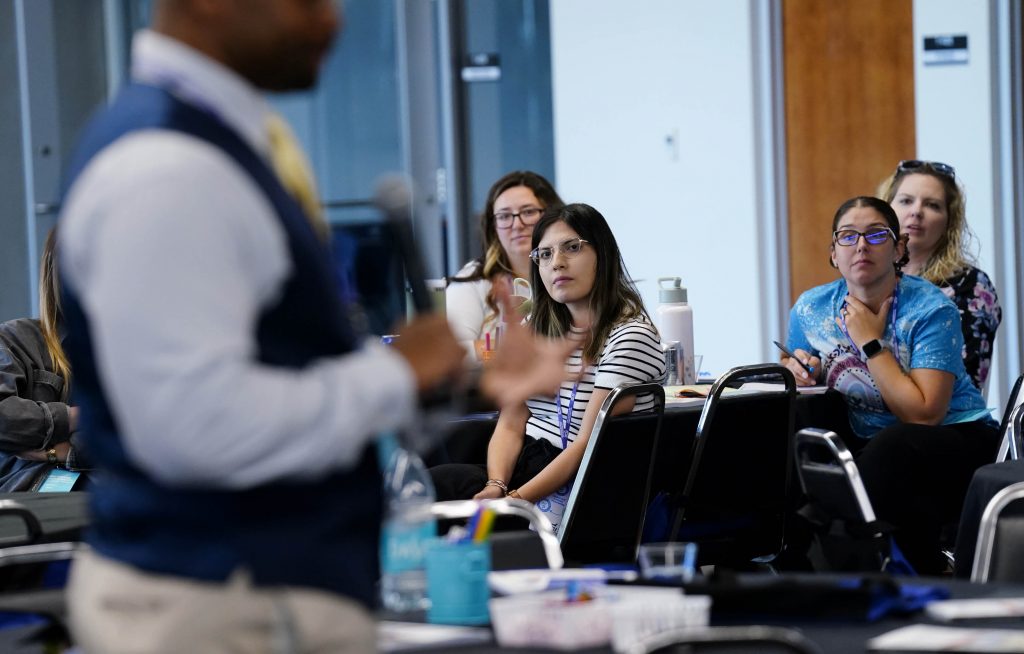
It’s easy to talk about all the problems in the world, he said. “But how can we get more joy in the world?”
One way to create more joy in the educational system is building relationships with students by seeking to understand them. Know current pop songs, for example, and other pursuits important to them.
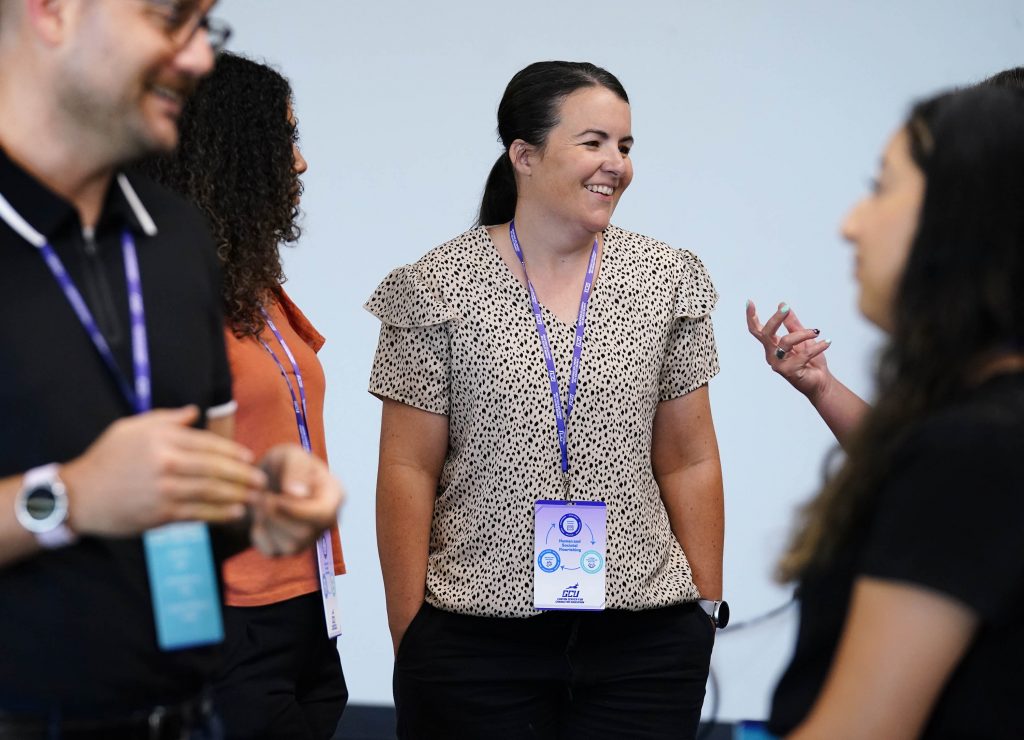
If you want them to be a good person you have to do more than teach the curriculum, said Angela Barney, a summit participant and teacher from Pima (Arizona) Junior High School.
“They may not remember what you taught them, but they will remember how you made them feel,” she said.
“There has been such discouragement with society. There is so much technology, so I’m just going to sit on my phone. You forget to talk to people. I can put down the phone down and be a good person. One of the presenters said that parents aren’t always trained to work with their child on that but it’s important that we support them. Teachers have that obligation. It’s our jam.”
Others connected with the discussion of being a role model of those values.
Heidi Phelps of Heritage Academy Gateway in Queen Creek said her school was founded on the principles of how to be a good person. So when she is teaching history, she uses historical figures of good virtue, such as Ben Franklin, describing not just what he did but how he did it with character.
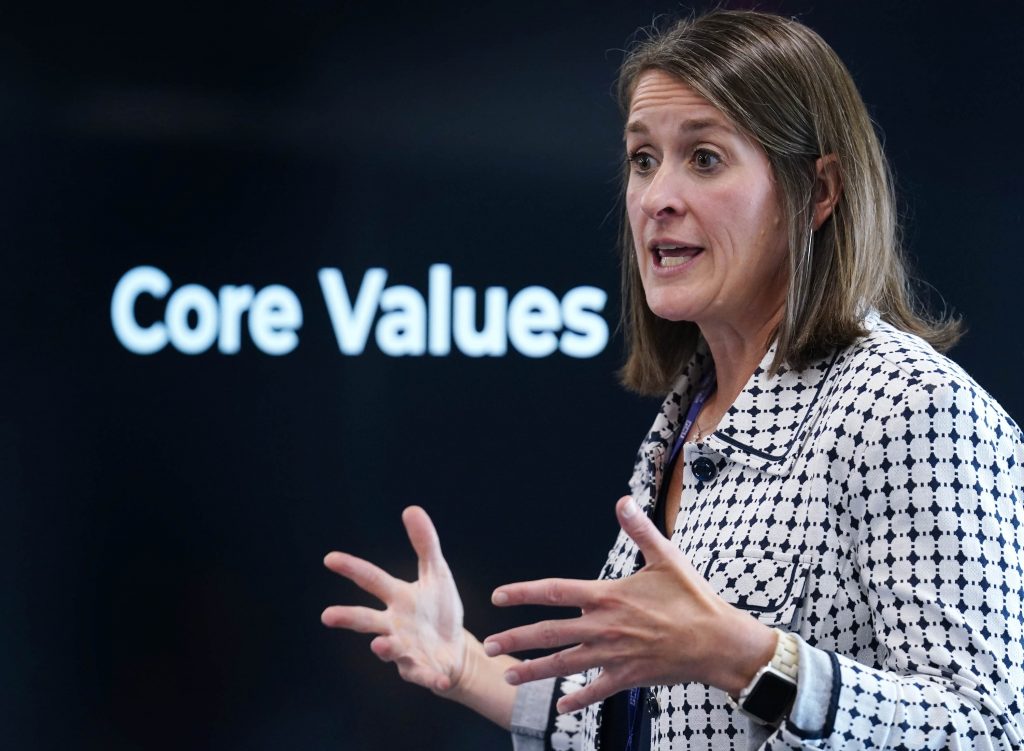
Also leading discussions in the two-day summit were Dr. Melinda Bier, the Teresa M. Fischer Professor of Citizenship Education and co-director of the Center for Character and Citizenship at the University of Missouri-St. Louis, and Dr. Amy Johnson, who also works at the Missouri center.
Dr. Alicia Hunsberger, principal of Louis Pizitz Middle School in Vestavia Hills, Alabama, led breakout sessions on how to get character education started in schools. It begins, she said, with prioritizing “kids over content.”
One of the most popular employees among students in her school is a custodian, she said, who has built relationships with them.
The success of character education is hard to measure quantitatively when its often qualitative, she continued before providing an example.
A child was not getting along, transferred to another school but returned after learning it was worse. Hunsberger made it a point to cheerfully say hello to the student every day, only to get back a grunt and side-eye. But by the end of the year, that student wrote her a note, thanking her for brightening the days. It made a big difference.
Hunsberger also uses other students to get the message across, letting them do videos on the core values of the school to “move the needle.”
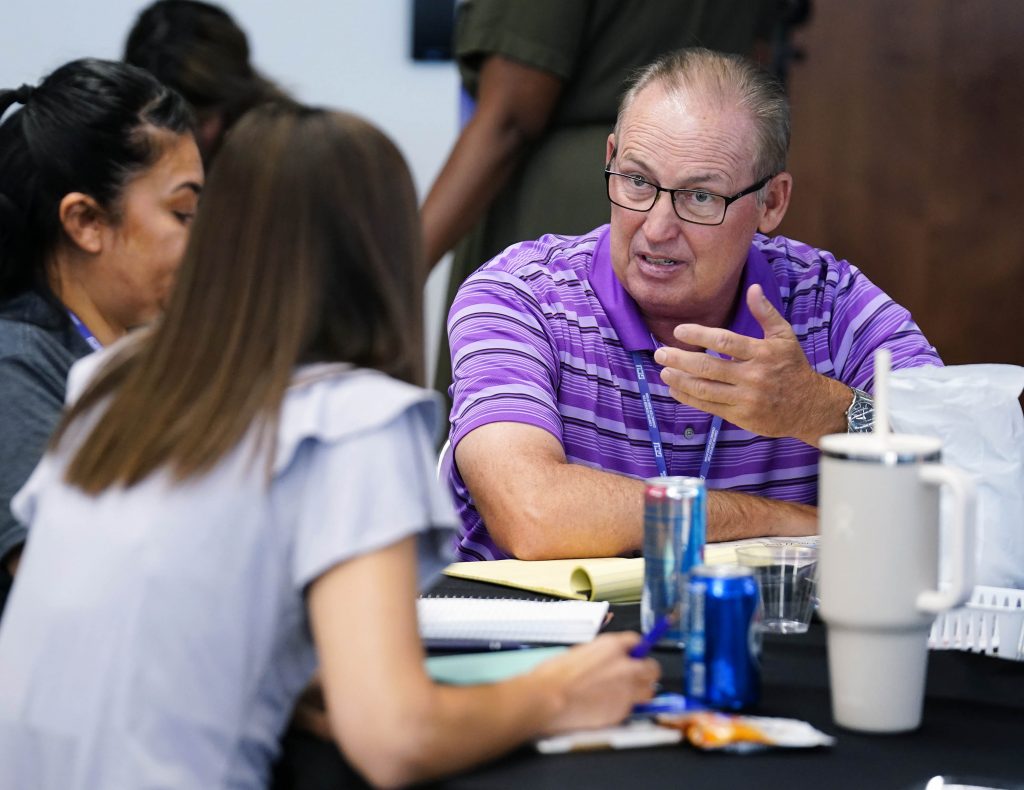
CCCE has worked with schools on these efforts after the Robert D. and Patricia E. Kern Family Foundation Inc. awarded GCU a grant of $2,271,000 to develop the program, which includes outreach to schools. Farkas and CCCE assistant director Dr. Ashley Betkowski visited Youngker High School in Buckeye, Arizona, to share ideas on the school’s creation of an environment of trust and building relationships.
Dr. Michael Sivertson, Youngker’s principal, brought a team to the summit, impressed that a university, one where he is proud to have earned his doctorate, is leading character education efforts in K-12 schools.
“Character education is hard to quantify it, but we do it through stories,” he said. “We tell our story.”
That story is one of values that create holistic, kind people, the ones we need right now to temper the divisive streak in our culture.
Grand Canyon University senior writer Mike Kilen can be reached at [email protected]
***
Related content:
GCU News: My goodness, students put character on display
GCU News: Character center's videos highlight good 'vibe' in schools





































